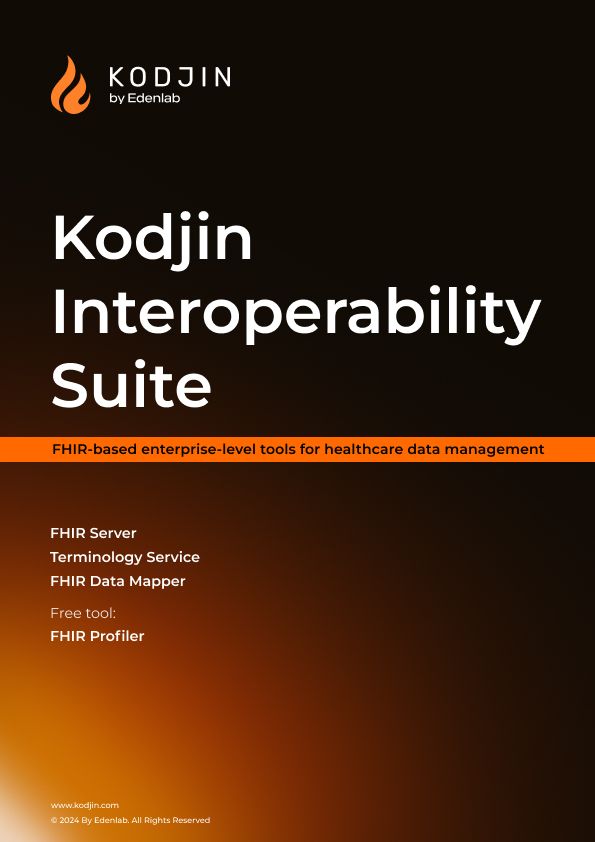Healthcare organizations are tasked with managing and storing an ever-growing amount of data, ranging from patient health records and medical images to research data. In today’s data-driven world, this information plays a critical role in providing quality patient care, advancing medical research, and improving health outcomes. It is imperative that this data be stored securely and efficiently, as even a small data breach or loss could have far-reaching consequences.
With the rapid advancements in technology, there are now numerous data storage for healthcare options available. From traditional on-premise storage solutions to the latest cloud data storage solutions, the choices can be confusing and overwhelming. This is why it is essential for healthcare organizations to be informed about the different storage options and their advantages and disadvantages.
In this article, we will examine the different types of data storage systems in healthcare and help you make an informed decision about which option is right for your organization.
Why does healthcare data storage matter?
Healthcare data storage is a critical component of providing quality patient care and advancing medical research. Proper storage of this data is essential to ensure compliance with regulations, protect patient privacy, support quality patient care, and prepare for disaster scenarios.
Let’s examine some reasons why deploying data storage in healthcare that meets your specific needs is important:
1. Compliance with regulations: Healthcare organizations are subject to strict regulations regarding the storage and management of patient data, such as the Health Insurance Portability and Accountability Act (HIPAA) in the United States. Proper storage of this data is essential to ensure compliance with these regulations to avoid penalties.
2. Quality patient care: Accurate and up-to-date patient data is crucial for providing quality patient care. This data is used by healthcare providers to diagnose conditions, plan treatment, and monitor patient progress. Storing this data in an efficient manner is essential to ensure it is available when needed.7
3. Security: One of the biggest concerns with data storage systems in healthcare is ensuring confidential patient data is protected from unauthorized access and breaches. This includes both physical security measures to protect data stored on-premise as well as cyber security measures to protect data stored in the cloud or on remote servers.
4. Cost: Healthcare organizations must balance the cost of storage solutions with the need to protect patient data. One of the most important healthcare data storage challenges is choosing a storage solution that provides the right balance of cost and security.
5. Data backup and recovery: In the event of a disaster or data loss, healthcare organizations must be able to quickly recover their data. Ensuring that data is stored in a manner that facilitates quick and efficient recovery is a major concern for healthcare organizations.
6. Scalability: As healthcare organizations collect more data, they must ensure their storage solutions are able to scale to meet growing demands. Choosing a data storage method in healthcare that is scalable and can grow with the organization’s needs is essential.
7. Integration with other systems: Healthcare organizations often have multiple systems in place to manage different aspects of patient care. Healthcare organizations want to ensure their clinical data storage solution can integrate with these systems and share data seamlessly.
Choosing the right healthcare data storage solution options requires the right balance of cost, security, and functionality to meet their specific needs. Below we’ll examine the various healthcare data storage methods.
On-premise data storage for healthcare providers
On-premise data storage refers to a data storage solution that is located within an organization’s physical premises, such as a server room or data center. In this HL7 FHIR data model, the organization owns and manages the storage hardware and software and is responsible for maintaining, upgrading, and securing the data.
On-premise data storage solutions are often favored by healthcare organizations for the ability to maintain a high level of control over their data, since data privacy and security are of utmost importance. However, on-premise storage can also be complex and expensive to manage and may not be the best option for healthcare organizations with limited IT resources or those that need to store large amounts of data.
Pros of on-premise data storage:
- Control: With on-premise data storage, healthcare organizations have complete control over their data. This includes the ability to physically secure the data, ensure compliance with regulations, and implement backup and disaster recovery measures.
- Customization: On-premise data storage solutions can be customized to meet the specific needs of healthcare organizations. This includes integrating with existing systems, adding custom features, and fine-tuning performance to meet the technical and business demands of the organization.
- Latency: For organizations with high-bandwidth requirements, such as those that need to store and access large medical images, on-premise data storage can provide faster and more reliable performance compared to cloud-based storage solutions.
Cons of on-premise data storage:
- Complexity: On-premise data storage solutions can be complex to manage and maintain. This includes the need for in-house IT expertise to manage hardware and software, as well as the ongoing cost of maintenance and upgrades.
- Cost: On-premise data storage solutions can be more expensive than cloud-based storage solutions. The upfront cost of purchasing hardware and software, as well as hiring a team to perform maintenance and upgrades, can add up to substantial costs.
- Security: Data security in healthcare becomes your responsibility. And it’s not guaranteed you will be able to establish better security methods than cloud providers.
- Scalability: On-premise data storage solutions can be limited in scalability, making it difficult for organizations to add storage capacity as their needs grow.
- Disaster recovery: On-premise medical data storage solutions are vulnerable to disaster scenarios, such as natural disasters, power outages, and cyberattacks. Ensuring data is backed up and can be quickly recovered in the event of a disaster can be complex and expensive.
Cloud data storage for healthcare organizations
Cloud storage in healthcare is a type of data storage solution that uses remote servers to store and manage data. The data is stored on servers maintained by a cloud storage provider, such as Microsoft Azure, AWS, and Google Cloud, and accessed over the internet, rather than being stored on local servers or hard drives. This allows healthcare organizations to store and access large amounts of sensitive patient data from anywhere with an internet connection, without the need for expensive and complex on-premise storage solutions.
Medical cloud data storage solutions typically offer many features, including automatic backups, disaster recovery, data encryption, and security measures to help protect sensitive patient data, which are few benefits of cloud storage in healthcare. They are also highly scalable, making it easy for healthcare organizations to increase or decrease their storage capacity as needed. However, healthcare organizations must consider the security and privacy of their data when choosing a cloud data storage solution.
Pros of cloud storage for healthcare data:
- Scalability: Cloud-based storage solutions are highly scalable, making it easy for organizations to increase or decrease their storage capacity as needed. This eliminates the need to purchase additional hardware and software and helps reduce the cost of storage over time.
- Cost-effectiveness: Cloud-based storage solutions can be more cost-effective than on-premise storage solutions. With cloud storage, organizations only pay for the storage capacity they need and can easily scale up or down as their needs change.
- Security: Cloud-based storage solutions are often more secure than on-premise storage solutions. This is because cloud storage providers invest heavily in security measures, including encryption, firewalls, and backup and disaster recovery plans.
- Automated backups and disaster recovery: Cloud-based storage solutions typically offer automated backup and disaster recovery services, ensuring that data is always protected and easily recoverable in the event of a disaster.
Cons of cloud storage for healthcare data:
- Loss of control: With cloud-based storage, organizations must rely on the storage provider to manage and maintain the storage infrastructure.
- Data privacy: Healthcare organizations handle large amounts of sensitive patient data and may be concerned about the privacy and security of this data when stored in the cloud. This is particularly true for organizations operating in countries with strict data privacy regulations.
- Security concerns: Despite the security measures put in place by cloud storage providers, there is still a risk of data breaches, particularly if proper security protocols are not followed. In addition, the security of cloud-based storage is only as strong as the security of the network it is connected to, and the risk of hacking or other security threats is always present.
Cloud vs On-Premise Data Storage: Comparison Chart
Below is a comparison chart for on-premise data storage and cloud data storage for healthcare organizations:
| Aspect | On-Premise Data Storage | Cloud Data Storage |
| Location | Physically located within the organization’s premises (server room or data center) | Data stored on remote servers maintained by a cloud storage provider |
| Control | High level of control over data and infrastructure | Reliance on the cloud storage provider for managing and maintaining infrastructure |
| Latency | Faster and more reliable performance for high-bandwidth requirements | Slightly higher latency due to data access over the internet |
| Complexity | Complex and requires in-house IT expertise for management | Simpler management and maintenance with the provider handling infrastructure |
| Cost | Expensive upfront costs for hardware, software, and maintenance | Cost-effective, pay-as-you-go model, reducing upfront expenses |
| Security | Organization’s responsibility, potential for varying security measures | Providers invest in robust security measures, but concerns remain about data privacy |
| Scalability | Limited scalability, difficult to add storage capacity | Highly scalable, easily increase or decrease storage capacity as needed |
| Disaster Recovery | Complex and expensive to implement disaster recovery measures | Often includes automated backups and disaster recovery services |
| Data Privacy | Potential to establish stronger control over data privacy | Concerns about data privacy compliance in cloud environments |
| Compliance with Regulations | Direct control over compliance with regulations | Cloud provider’s compliance may need verification for industry-specific regulations |
Keep in mind that the suitability of either option depends on the specific needs, budget, and security requirements of the healthcare organization. Each approach has its advantages and challenges, and organizations must carefully evaluate their priorities to make the right decision.
Hybrid data storage options for healthcare organizations
Hybrid data storage is a combination of both on-premise and cloud-based data storage solutions. With a hybrid storage solution, healthcare organizations can store some data on their own servers (on-premise) and other data on remote servers maintained by a cloud storage provider. This allows organizations to take advantage of the benefits of both on-premise and cloud-based storage solutions.
One of the main benefits of hybrid data storage is it provides organizations with greater flexibility and control over their data. For example, they can store sensitive patient data on their own servers for increased security, while storing less sensitive data in the cloud for easier access and sharing. This also provides organizations with the ability to store data closer to where it is being used, reducing latency and improving performance.
However, hybrid data storage solutions can also be more complex and require more resources to manage than other storage types.
Pros of hybrid data storage for healthcare:
- Flexibility: Hybrid storage provides organizations with the flexibility to store different types of data on different storage solutions, depending on the specific requirements of each type of data.
- Control: Hybrid storage provides organizations with greater control over their data, as they can store some data on their own servers and have more control over its security and privacy, while also taking advantage of the benefits of cloud-based storage for other data.
- Performance: By storing data closer to where it is being used, hybrid storage can help reduce latency and improve performance, as data does not need to be transmitted over long distances.
- Cost: Hybrid storage can be more cost-effective than other storage solutions, as organizations can take advantage of the scalability and cost savings of cloud-based storage for less critical data, while still being able to maintain control over their most sensitive data.
Cons of hybrid data storage for healthcare:
- Complexity: Hybrid storage solutions can be more complex and require more resources to manage than other storage solutions, as they involve both on-premise and cloud-based storage components. This can result in increased costs and a need for specialized expertise to manage the solution.
- Security: Ensuring the security and privacy of sensitive patient data can be more complex with a hybrid storage solution, as data is stored in multiple locations and may be subject to different security standards and regulations.
- Cost: Hybrid storage solutions can be more expensive than other storage solutions, as they often require the investment in both on-premise and cloud-based storage components.
How to choose the right healthcare data storage solution for your organization
The healthcare industry generates and manages large amounts of sensitive data, making effective data storage a critical concern. With various options available, including on-premise, cloud-based, and hybrid storage solutions, it can be difficult to determine the best choice for your organization.
To help you make an informed decision, we’ve created a comparison table that highlights the key features and benefits of each type of healthcare data storage option. Whether you’re looking for increased control over your data, improved security, cost-effectiveness, or the ability to access your data from anywhere, our comparison table can help you find the right solution for your needs.
So, let’s take a closer look at the different healthcare data storage options available and how they stack up against one another.

Conclusion
Choosing the best practices for healthcare data storage methods requires careful consideration of the specific needs and requirements of the organization. On-premise data storage provides organizations with greater control over their data but can be more expensive and less flexible. Cloud data storage offers scalability and cost savings but may present security and privacy concerns. Hybrid data storage provides organizations with the benefits of both on-premise and cloud-based storage but can be more complex and expensive.
Each organization must weigh the benefits and drawbacks of each option to determine the best choice for their organization. This decision becomes even more critical when planning a scalable and secure FHIR server implementation.
If you are unsure about which storage solution is right for your FHIR project, our team of system architects can analyze factors such as cost, security, performance, flexibility, and scalability to determine the best storage type for your organization. We have experience leading and deploying national-level healthcare projects as well as independent practice EHR systems. Contact us to get a free consultation on healthcare data storage solutions.





